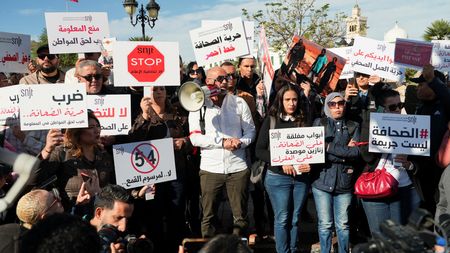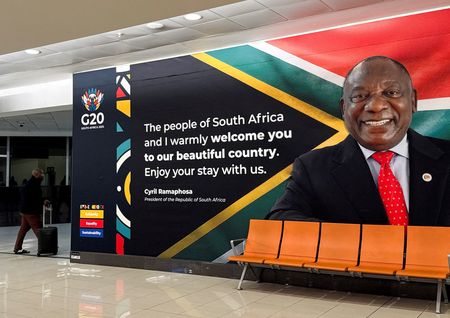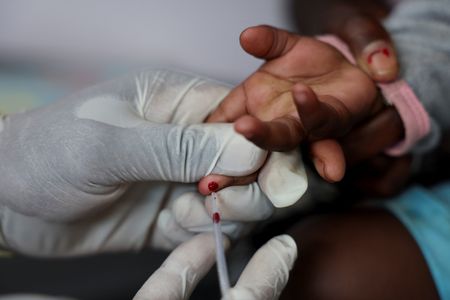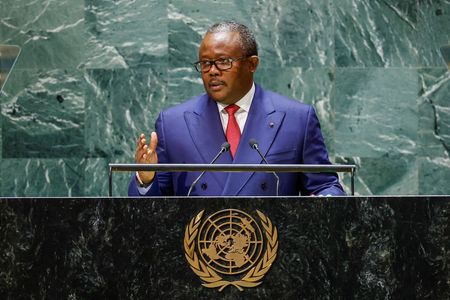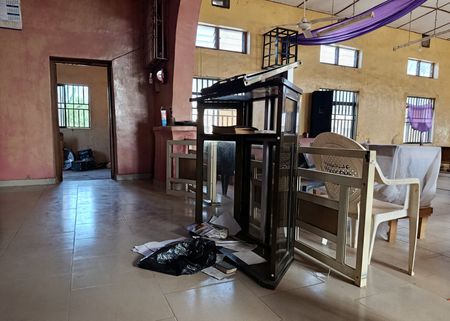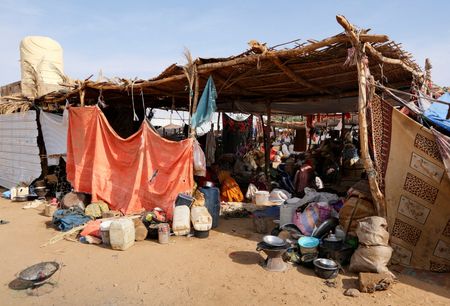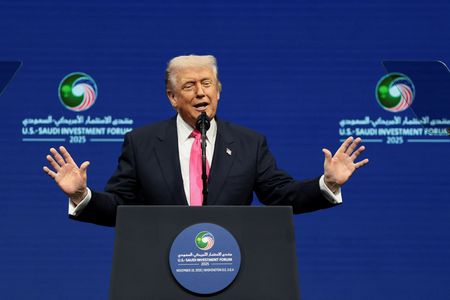By Tarek Amara
TUNIS (Reuters) -Tunisian journalists protested on Thursday near government offices, demanding an end to restrictions on reporters and the release of jailed colleagues, and vowing that the widening crackdown will not silence them.
The protests confirmed growing fears of unprecedented threats to free speech since Kais Saied seized power in 2021.
Hundreds of reporters waved press cards, chanting “Journalism is not a crime” and “Freedom for Tunisian media”.
Free speech had flourished following the 2011 uprising that toppled autocrat Zine El Abidine Ben Ali and sparked the “Arab Spring”, and President Saied has denied targeting press freedom.
Critics, however, say his 2021 power grab and subsequent decrees have dismantled democratic safeguards and allowed authorities to pursue journalists for committing offences which are not clearcut.
The Tunisian Journalists’ Syndicate (SNJT) said the escalating pressure was aimed at silencing strong free voices and subjugating the media.
“The situation is sounding the alarm. There is a systematic killing of journalism. We cannot cover government or parliament activities, nor events in the streets,” said Nourredine Ahmed, a freelance journalist said.
Amira Mohamed, who works for Mosaique Radio, said the situation was “very bleak”, and that dozens of journalists are being prosecuted while others are behind bars.
They have complained about not receiving their 2025 press cards, while foreign journalists said filming permits had been suspended, leaving them vulnerable to police obstruction and long periods of detention.
The journalists’ syndicate says public media, including state TV and radio, have turned into a mouthpiece for Saied’s regime.
At least five journalists are in prison, while others face judicial investigations over social media posts or critical reporting.
The Minister of Justice, Laila Jaffal, said this week that there had been no prosecutions over freedom of expression, but rather for defamation.
Tunisian authorities last month suspended the Nawaat journalists’ group, which runs one of the country’s leading independent investigative media outlets.
(Reporting by Tarek Amara, editing by Ed Osmond)

